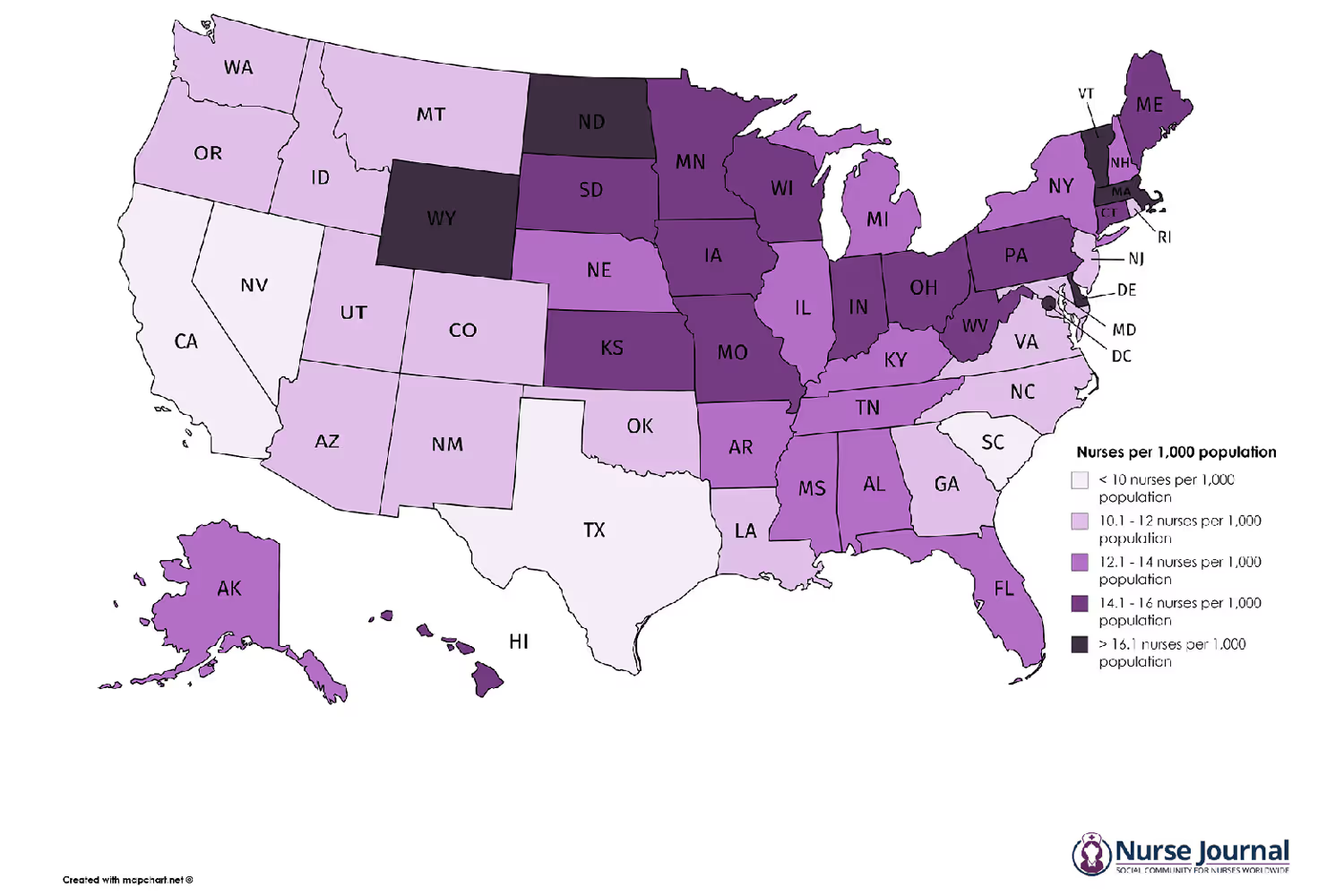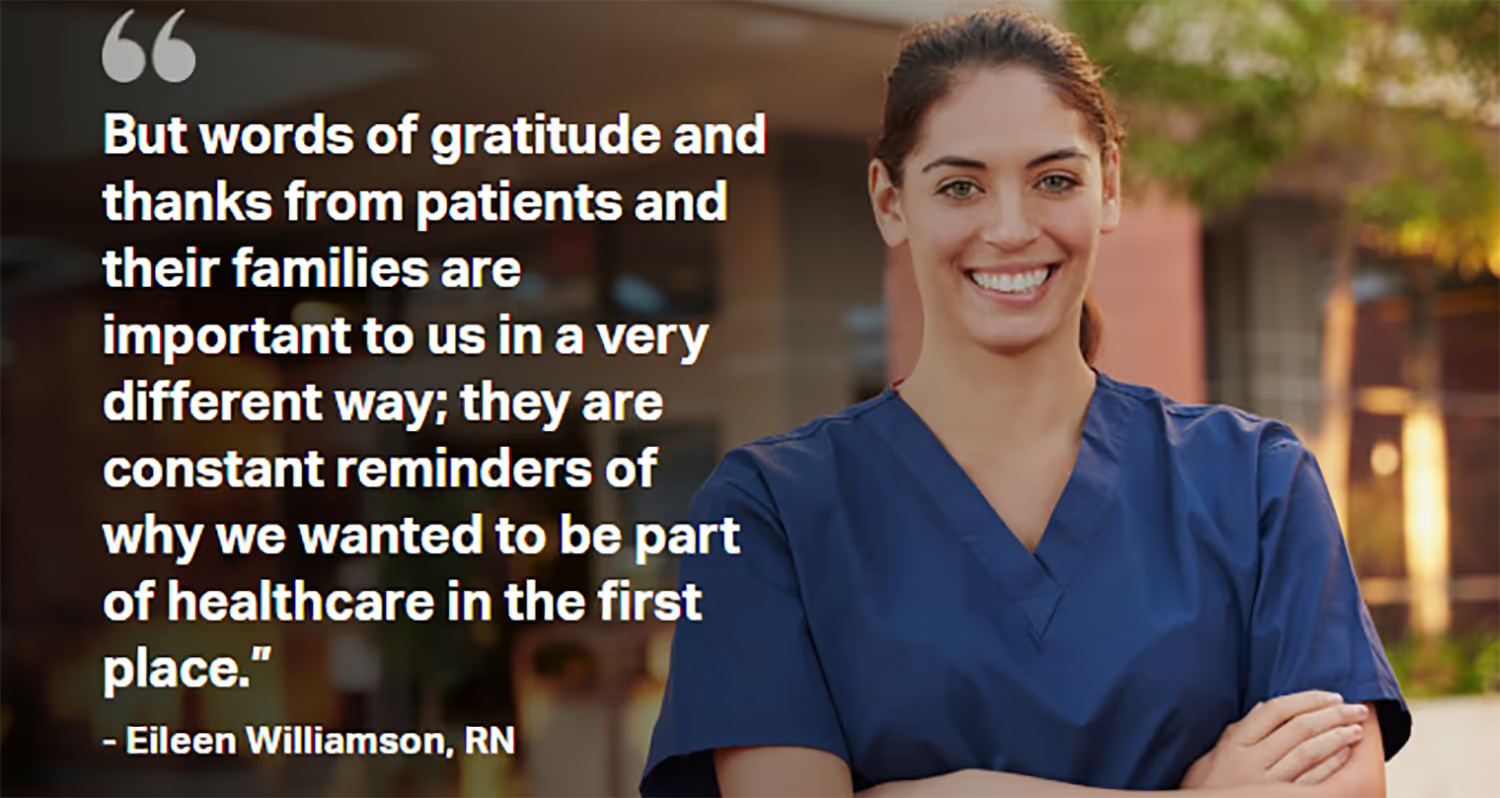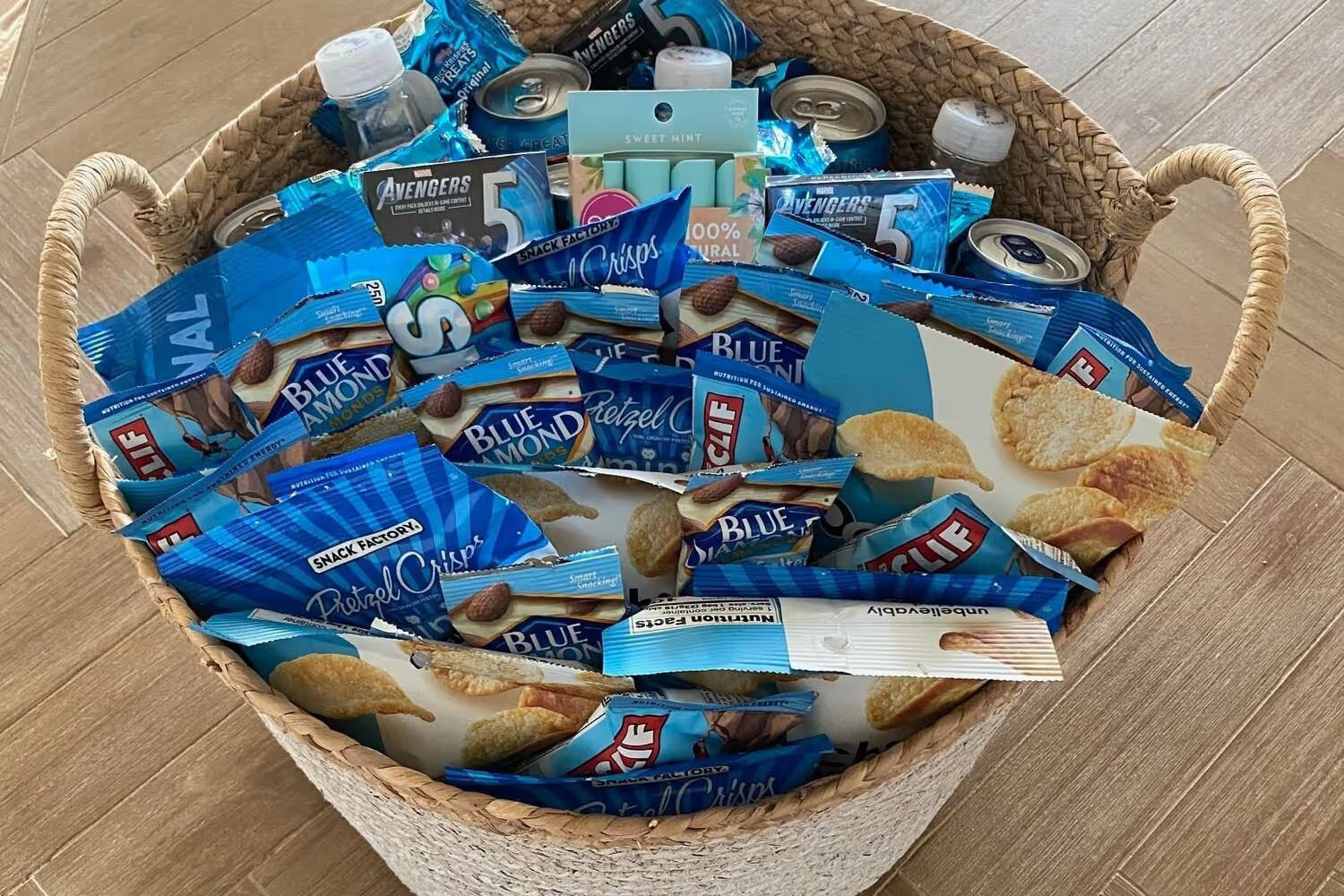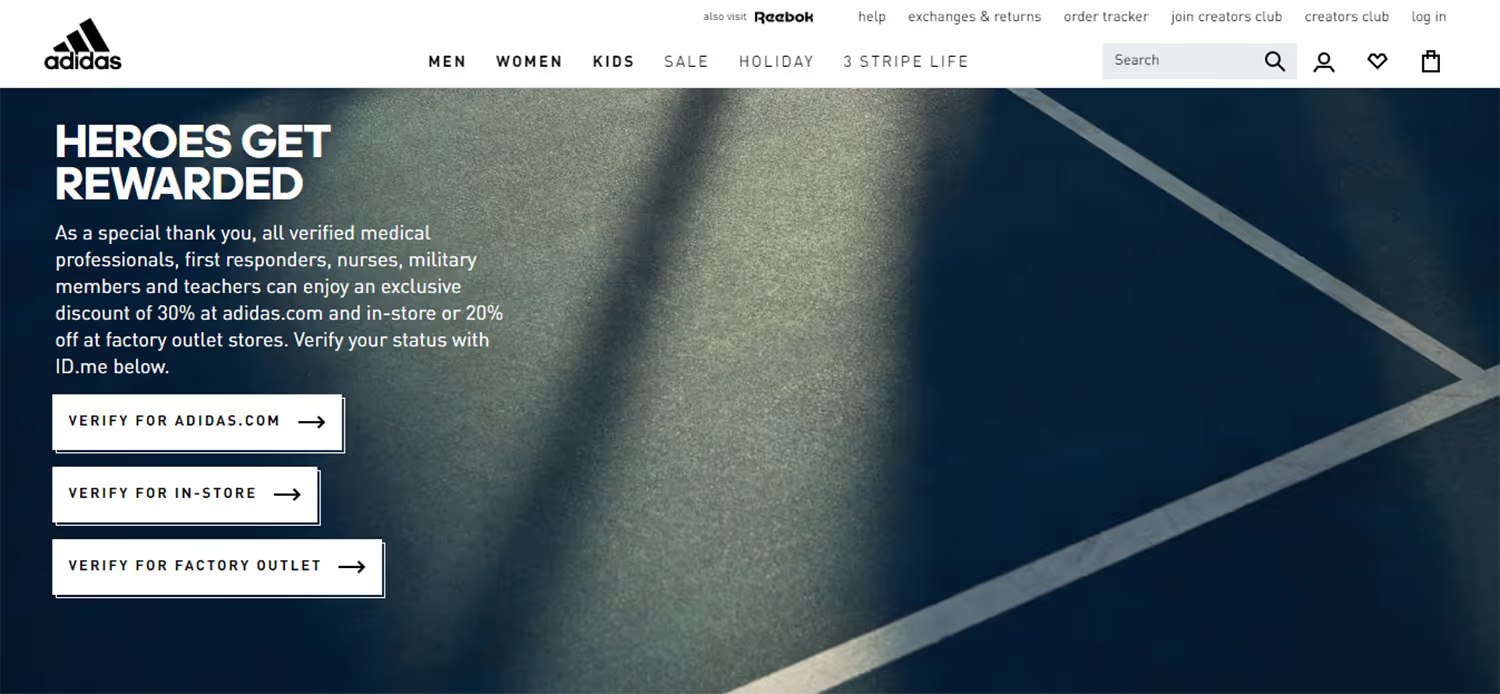How To Write Thank You Letters to Nurses
Let’s take a look at the importance of sending thank you letters to nurses as a patient and how to write them.

Over the last few years, we’ve all heard about how tough it is to be in the medical profession. You don't need to be in the field to have heard the phrase "healthcare hero" over and over. It seems like every other commercial in 2020 used it.
America was finding so many ways to recognize these people, especially nurses, during the COVID-19 pandemic. They were on the front lines through one of the most challenging times to be a healthcare worker. It brought attention to just how important and difficult their jobs can be.
Restaurants like Chipotle were giving away free meals to healthcare workers. Crocs gave away 10,000 pairs of their shoes to say thank you. Sutter Health honored its local healthcare staff with a virtual concert.
As these companies got creative with how they showed their appreciation, it might not seem impactful to say thank you as a patient. However, nurses still enjoy the small efforts that patients make to do this.
You don’t need to get extravagant with how you thank your nursing care team. Even something as simple as a thank you letter works. But why should you write these in the first place, and how do you do it so that it has an impact?
Let’s take a look at the importance of sending thank you letters to nurses as a patient and how to write them.
Why You Should Write Thank You Letters to Nurses
While large corporations are going the extra mile to show appreciation to their nurses, why should patients write a basic thank you letter?
The answer is pretty simple: you’re the actual patient. Your experience is different from anyone else’s and you want them to know about the positive effect the nurse had on you.
Morale among nurses is low. As of 2017, 70% reported feelings of burnout and half were considering leaving the industry.
A more recent study from 2021 surveyed nurses and their likelihood to leave the profession since the pandemic began. 22% of nurses said they may leave their position within the year, with 60% of those nurses saying it was more likely since the start of the pandemic. They planned to switch career paths, retire, or leave the workforce entirely.
This is on top of the healthcare worker shortage that we’re already experiencing. Over half of all registered nurses are 50 years or older and approaching retirement.
Studies as early as 2009 predicted a shortage of 300,000 to over million by 2020-2025. Even if the shortage was 300,000, that would still be three times larger than any US nursing shortage from the previous 50 years.
The pandemic only sped up this shortage with states across the country losing thousands of nurses since the beginning of it. This doesn’t even consider that the US already needs more nurses due to the increasing aging population.

During a time when we need healthcare workers the most, there’s a nursing crisis. This just leads to more burnout, causing even more nurses to want to leave the field.
After reading all these statistics about the lack of health workers, you might be wondering how it relates to thank you letters.
Well, what if you had a job that was extremely short-staffed with a massive increase in customers?
During a time when almost everywhere seems short-staffed, there’s a chance that some of you can relate to that. Wouldn’t it be nice for someone to say thank you for showing up and putting in your hard work?
It’s important to do everything possible to boost nursing morale so that even more don’t leave the field. As the shortage grows but patient volume increases, there’s a bigger problem for those who need care.
There could be longer wait times at facilities while fewer nurses deal with more clients. Even worse, some Louisiana hospitals have had to turn away heart attack and stroke patients. This is, unfortunately, a common trend as other states also turn away those who need care.
So take the time to show appreciation to nurses. It helps them know that the work they’re doing has an impact and that their efforts are making a huge difference.
The Impact of a Thank You Letter
While the care that nurses provide has an impact on patients, thank you letters have an impact on nurses. These health workers have expressed how meaningful these handwritten notes are to them. Some recall what the patient or patient’s family member wrote to them, stating how much of an influence this had on them in their daily life at work.

Expressing and receiving gratitude helps boost overall job satisfaction. It has also significantly improved self-efficacy, psychological distress, and job performance. As one nurse states, receiving words of gratitude from patients and families is a reminder of why they chose to join this field.

Because of these reminders, they’re more likely to stick to the field because they know they’re having a positive impact on others.
Thank you letters from patients aren’t the only impactful messages for nurses, though. The health practice’s administration can also make a difference by showing their appreciation. Recognition should start with management. By acknowledging employee achievements and hard work, they have more motivation to keep it up.
Steps for Writing a Thank You Letter
So now that I’ve convinced you why thank you letters for nurses are a good idea, how do you write one?
First of all, you should handwrite your note if you’re able to. If not, don’t sweat it. A nurse would understand more than anyone if you physically can’t do this. But writing these makes them more personalized and it will capture attention.
Next, you’ll want to introduce yourself. Every hospital is different with its staffing ratios, but some nurses could be seeing seven patients per shift. And outpatient practices will have even more patients per day. Because these healthcare workers see so many different people in a day, they could forget your name after caring for you and you’ve gone home.

So you should remind them in your thank you letter who you are and how they cared for you. Once you do this, you should explain what you’re grateful for. Maybe you’re writing to the nurse who performed life-saving CPR for you.
Or you want to let them know how much you appreciate that they listened to your stories while you were there. Something simple like this might seem insignificant to a nurse. But showing gratitude for the little things that stood out to you reminds them that even the small actions make a difference.
Whatever it is that you’re thankful for, let the nurse know. This gives them the motivation to continue providing care. And it may also give them patience when tending to basic call light requests like refilling water or bringing an extra pillow.
Alternative Ways to Say Thank You
Maybe you feel motivated now to show your gratitude for your healthcare team. There are other ways you can say thank you if writing a letter doesn’t feel like enough. Here are some more ways that you can show your appreciation.
Gift Basket
Some patients will send a gift basket to their nursing team as a way to say thank you.
They may bring these after leaving the hospital, or a family member brings them while the patient is still in the hospital.
Others will make up these baskets before going to the hospital if they know they’ll be receiving services, such as moms who prepare for delivery.

Food
With the chaos of caring for patients, health workers don’t always have time to take breaks. Plus, who doesn’t love food?
One nurse said she’s lucky if she gets five minutes to herself.
This makes a 12-hour shift even more exhausting if there isn’t time for a break to eat. Sending snacks as a thank you is a great way to boost their mood and energy to get through their shift when they can’t take a full break.
Discounts and Freebies
I mentioned at the beginning of this blog how companies were giving free products to healthcare workers as a token of gratitude.
This is a more elaborate option, but effective nonetheless. Many companies already offer discounts for health workers, but if you don’t, consider getting on board.

Survey Responses
Finally, consider responding to the surveys that your practice sends out acknowledging the staff that was on your care team. Sometimes these surveys may specifically ask for your feedback on them.
But if not, there’s usually a comment section where you can add details about them. Some hospitals may even have a site where you can rate the staff members.
If the quality of care impresses you, leaving positive reviews lets the practice know that these nurses are making a good impact. This could even benefit them by helping them get a raise or promotion.
Conclusion
With the nursing crisis that is currently happening, it’s more important than ever to find ways to keep nurses in the field. They’re losing motivation and experiencing more burnout leading them to decide to switch career paths.
But sometimes, receiving recognition for the work they do can give them encouragement to stay. It reminds them of why they chose the field, the importance of their work, and that their efforts do get noticed.

Getting thank you letters from their patients has a lasting impact. Even after the patient is gone, these health workers still remember the person and want to hold on to the token of appreciation. They even refer back to them as reminders when they need that extra motivation.
Emphasize your product's unique features or benefits to differentiate it from competitors
In nec dictum adipiscing pharetra enim etiam scelerisque dolor purus ipsum egestas cursus vulputate arcu egestas ut eu sed mollis consectetur mattis pharetra curabitur et maecenas in mattis fames consectetur ipsum quis risus mauris aliquam ornare nisl purus at ipsum nulla accumsan consectetur vestibulum suspendisse aliquam condimentum scelerisque lacinia pellentesque vestibulum condimentum turpis ligula pharetra dictum sapien facilisis sapien at sagittis et cursus congue.
- Pharetra curabitur et maecenas in mattis fames consectetur ipsum quis risus.
- Justo urna nisi auctor consequat consectetur dolor lectus blandit.
- Eget egestas volutpat lacinia vestibulum vitae mattis hendrerit.
- Ornare elit odio tellus orci bibendum dictum id sem congue enim amet diam.
Incorporate statistics or specific numbers to highlight the effectiveness or popularity of your offering
Convallis pellentesque ullamcorper sapien sed tristique fermentum proin amet quam tincidunt feugiat vitae neque quisque odio ut pellentesque ac mauris eget lectus. Pretium arcu turpis lacus sapien sit at eu sapien duis magna nunc nibh nam non ut nibh ultrices ultrices elementum egestas enim nisl sed cursus pellentesque sit dignissim enim euismod sit et convallis sed pelis viverra quam at nisl sit pharetra enim nisl nec vestibulum posuere in volutpat sed blandit neque risus.

Use time-sensitive language to encourage immediate action, such as "Limited Time Offer
Feugiat vitae neque quisque odio ut pellentesque ac mauris eget lectus. Pretium arcu turpis lacus sapien sit at eu sapien duis magna nunc nibh nam non ut nibh ultrices ultrices elementum egestas enim nisl sed cursus pellentesque sit dignissim enim euismod sit et convallis sed pelis viverra quam at nisl sit pharetra enim nisl nec vestibulum posuere in volutpat sed blandit neque risus.
- Pharetra curabitur et maecenas in mattis fames consectetur ipsum quis risus.
- Justo urna nisi auctor consequat consectetur dolor lectus blandit.
- Eget egestas volutpat lacinia vestibulum vitae mattis hendrerit.
- Ornare elit odio tellus orci bibendum dictum id sem congue enim amet diam.
Address customer pain points directly by showing how your product solves their problems
Feugiat vitae neque quisque odio ut pellentesque ac mauris eget lectus. Pretium arcu turpis lacus sapien sit at eu sapien duis magna nunc nibh nam non ut nibh ultrices ultrices elementum egestas enim nisl sed cursus pellentesque sit dignissim enim euismod sit et convallis sed pelis viverra quam at nisl sit pharetra enim nisl nec vestibulum posuere in volutpat sed blandit neque risus.
Vel etiam vel amet aenean eget in habitasse nunc duis tellus sem turpis risus aliquam ac volutpat tellus eu faucibus ullamcorper.
Tailor titles to your ideal customer segment using phrases like "Designed for Busy Professionals
Sed pretium id nibh id sit felis vitae volutpat volutpat adipiscing at sodales neque lectus mi phasellus commodo at elit suspendisse ornare faucibus lectus purus viverra in nec aliquet commodo et sed sed nisi tempor mi pellentesque arcu viverra pretium duis enim vulputate dignissim etiam ultrices vitae neque urna proin nibh diam turpis augue lacus.


.avif)

